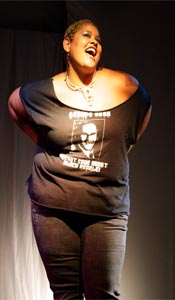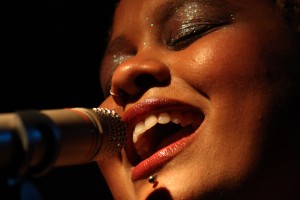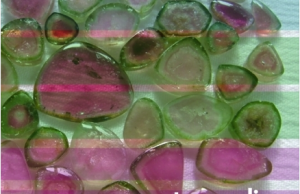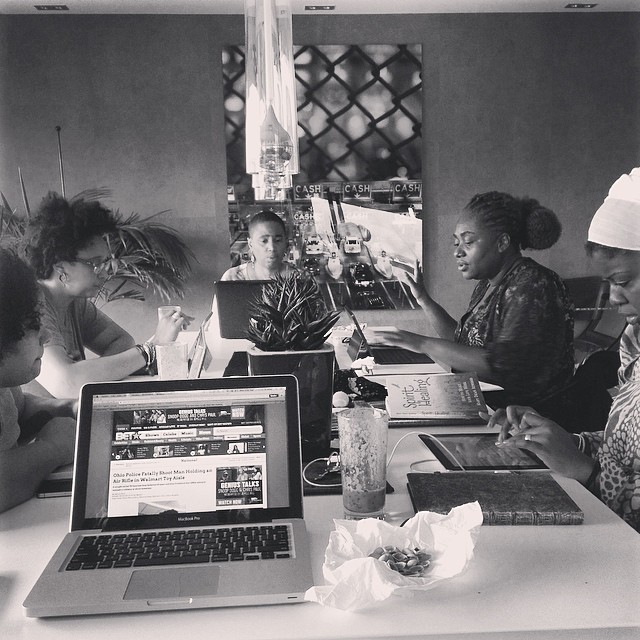Not all Black women.
Fat? Nope. You’re too unhealthy.
Poor? Nope. You don’t know how to manage your money.
Light and got the nerve to say anything about the discomfort of ambiguity? Nope. Tragic mulatto, whining like a tired, yellow siren.
Dark and got the nerve to say something about the discomfort of marginality? Nope. You’re bitter, like dark cocoa. You’re just too insecure.
Teen Mom? Nope. You make bad decisions. And you can’t control yourself.
Ever stripped or had sex for money? Nope. You’re an immoral slut who’s bringing down the race, like a golddigger bringing down a pillar of the community.
Raised by a single mother? Definitely not. Daddy issues.
Victim of domestic violence? Nuh uh. You are weak and definitely nobody’s role model. You should have beat his ass or not gotten involved with someone who you KNEW was going to abuse you.
Manly/masculine/butch? Hell no. You make everyone think that Black women can’t be feminine or soft and that we’ll just beat any man who looks at us wrong.
Gay? No. Bible.
Disabled? Poor thing. What could you possibly have to say that has anything to do with us able-bodied Black women?
Transgender? How dare you even call yourself a Black woman? You’re confused.
Raped? Silence. Whatever happened to you, you probably brought on yourself. You should go get help and keep yourself away from the rest of us until you’ve gotten it together.
No. Not all Black women experience trauma or pain or abuse. Not all Black women are poor or uneducated or got pregnant while adolescent. Not all Black women are fat or manly or gay. Not all Black women are light or dark. Not all Black women use their bodies to get ahead or make money. Not all Black women are disabled. Not all Black women are transgender.
But some of us do and some of us are. Some of us represent the majority of that not-at-all-totally-inclusive list above.
We are not the kind of women who get photographed at poetry sets or indie music concerts. No, not all Black women represent the visual ideal of what it means to be Black and female, whether mainstream or indie, pop or alternative, weaved up or Afropunked.
Some of us just don’t make the cut. Of course, respectability politics are at play here. No matter how much we think we know about the insidiousness of racism, we still hold out hope that if we’re clever enough, pretty enough, rich enough, able enough, feminine enough, talented enough, polite enough, classy enough, religious, law-abiding and yes, respectable enough, that we can make a system of thought that is literally the foundation of this country…disappear. And that’s why we put so much faith in representation. We think that if the “right” images and narratives of Blackness are circulated, then we will finally prove our humanity and be treated equally and justly.
What we forgot is that humanity is, by it’s very nature, complicated. We forgot that the narratives are never simple and that even the most perfect among us are flawed, marred by some little wrinkle, prone to taking abrupt left turns and walking off the path, even one expertly laid out.
In a world where 40-60% of Black women will be raped before the age of 18 and yet only one in 10 will ever report and still represent the least amount of convictions of those who do report amongst all ethnic groups, I’d wager that visibility is more important for Black women, all Black women, than representation. There has never been an official study conducted of violence against Black transwomen. Nor a comprehensive study of the violence against Black women, save for a couple conducted by small non-profits without many resources. When we choose to highlight only certain sisters, when we choose respectability over reality, when we choose to force sisters into the closet about their sexuality, their gender identities, their weight, the abuse they may have experienced, even bad choices, we are denying the humanity of Black women. That tired trope that would have all of us as church-going, strong, Black women who make only fine secretaries, mothers and non-threatening chicks who hold it down is something that we ourselves have to destroy.
It’s time for us to admit that some of us may not be strong or church-going, may not be classy or motherly, may not be able to or want to hold it down. It’s time for us to admit that and support the sisters that don’t fit the narratives that we consider valid. It’s time for Black women to acknowledge that bad things happen to us and it’s not always our fault. It’s time for us to understand that not everyone is equipped to make good choices all the time and that there is life, so much life, after making bad choices. It’s time for us to turn to this insidious system and demand that it stop being so hard on us. Many of us are strong. Many of us hold down the church, our families, neighborhoods, schools, hospitals and so many other institutions. Many of us are successful and have our financial games on lock. Many of us are healthy, fit and beautiful. Many of us waited to have children. Many of us are married or in loving, long-term relationships that are not abusive or dysfunctional. Many of us are straight or passing for straight and have never had to negotiate a divide between our biological and psychological realities. Many of us are accomplished educators, artists, writers, scientists, engineers, doctors, lawyers and so much more. Many of us are the very representatives who we think should represent Black women, but not all of us. Not all Black women, but we’re here and so are our complicated, messy, not comfortable or representational narratives. We are here and we matter, too. #notallblackwomen
Nikki Patin has been writing for over two decades. She has taught hundreds of workshops on performance poetry, body image, sexual assault prevention and LGBT issues. Patin has performed, taught and spoken at elementary schools, high schools, colleges and universities such as the University of Chicago, Adler School of Psychology, Northwestern University, Nancy B. Jefferson High School (located within the Cook County Temporary Juvenile Detention Center), University of Michigan, University of Wisconsin-Madison and many others. Patin was featured on the fourth season of HBO’s Def Poetry Jam, was voted one of 30 under 30 most influential LGBTQ people in Chicago by Windy City Times and took the gold medal in the 2006 Gay Games International LGBT poetry slam. Patin was voted “Best Standout Performer” in the Dunedin Fringe Festival while headlining a tour of her one-woman show, “The Phat Grrrl Revolution” throughout New Zealand and Australia. She has released several chapbooks, a full-length collection of writing and design, two EPs and a full-length album entitled “Bedroom Empire.” Patin designed and maintains www.nikkipatin.com and www.





Pingback: non tutte [...] | SUD DE-GENERE